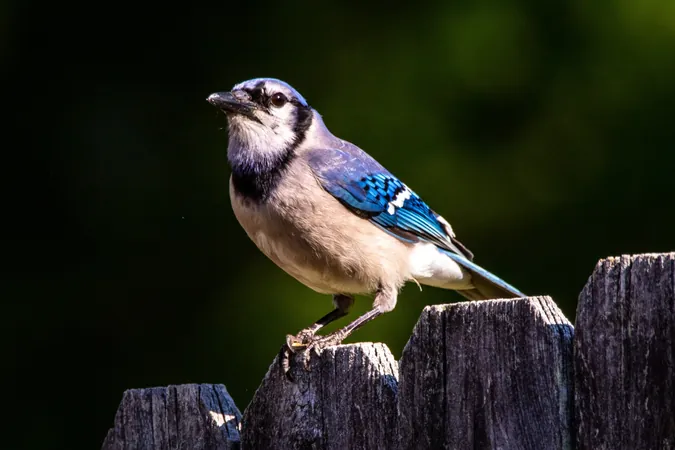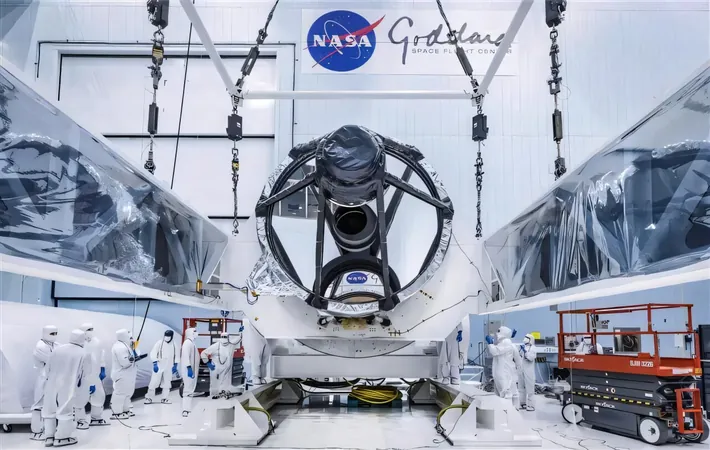
Unlocking Animal Intelligence: A Groundbreaking Perspective Shifts How We View the Animal Mind
2024-11-15
Author: Charlotte
Unlocking Animal Intelligence: A Groundbreaking Perspective Shifts How We View the Animal Mind
In a revolutionary approach to understanding animal intelligence, philosopher Bas van Woerkum-Rooker argues that our traditional human-centric perspective limits our appreciation of the mental capabilities of other species. He asserts that animals may think differently, but that does not diminish their intelligence. As he prepares to defend his Ph.D. thesis at Radboud University on November 20, van Woerkum-Rooker is ready to present a fresh perspective that could change how we conduct animal behavior research.
"Humans often perceive themselves as the pinnacle of intelligence, frequently underestimating the cognitive abilities of animals," van Woerkum-Rooker states. His research challenges the common assumption that animal intelligence is inherently inferior. For instance, he highlights the case of dogs that sit by the window before their owners come home. Initially thought to demonstrate an understanding of time, this behavior could actually be linked to the fading scent of the owner throughout the day. "This revelation suggests that the dog’s perception of time relies on its sense of smell, a completely valid form of intelligence," he elaborates.
One particularly fascinating aspect of van Woerkum-Rooker's research is his analysis of jays, a species known for their remarkable memory when it comes to hiding food. These birds have been observed to remember the location of nuts and grubs with striking accuracy, adapting their behavior based on the perishability of their food sources. However, van Woerkum-Rooker cautions against hastily attributing human-like episodic memory to their actions. “Other factors, such as environmental cues, must also be considered," he explains. "Just like humans, animals utilize sensory information to navigate their world.”
Indeed, the philosopher emphasizes the importance of re-evaluating how we define intelligence. He proposes a new research framework that prioritizes understanding an animal's sensory perceptions rather than merely comparing animal cognition to human traits. "To study intelligence accurately," he insists, "we must acknowledge the unique sensory experiences of each species. This means accounting for environmental variables like sound and light that affect their behaviors—this requires more field research to understand animals in their natural habitats."
Van Woerkum-Rooker's insights extend beyond birds; he draws parallels between seemingly disparate animals. For example, many people consider elephants more intelligent than ants due to their social behaviors and empathy. However, van Woerkum-Rooker challenges this view by asserting that the communal work and problem-solving abilities of ants also demonstrate a sophisticated form of intelligence.
The quest to define intelligence itself is fraught with complexity, he notes. "Instead of asking what intelligence is, we should be asking how various animals' sensory perceptions inform their actions." This paradigm shift, van Woerkum-Rooker advocates, will shed light on the rich tapestry of animal intelligence, paving the way for deeper understanding and appreciation of the cognitive lives of the creatures with whom we share our planet.
As ongoing research continues to unveil the depths of animal cognition, perhaps it is time to celebrate the extraordinary intelligence of non-human minds, free from the constraints of human comparison. Will this groundbreaking perspective inspire a more compassionate understanding of animal rights and welfare? Only time will tell!









 Brasil (PT)
Brasil (PT)
 Canada (EN)
Canada (EN)
 Chile (ES)
Chile (ES)
 España (ES)
España (ES)
 France (FR)
France (FR)
 Hong Kong (EN)
Hong Kong (EN)
 Italia (IT)
Italia (IT)
 日本 (JA)
日本 (JA)
 Magyarország (HU)
Magyarország (HU)
 Norge (NO)
Norge (NO)
 Polska (PL)
Polska (PL)
 Schweiz (DE)
Schweiz (DE)
 Singapore (EN)
Singapore (EN)
 Sverige (SV)
Sverige (SV)
 Suomi (FI)
Suomi (FI)
 Türkiye (TR)
Türkiye (TR)